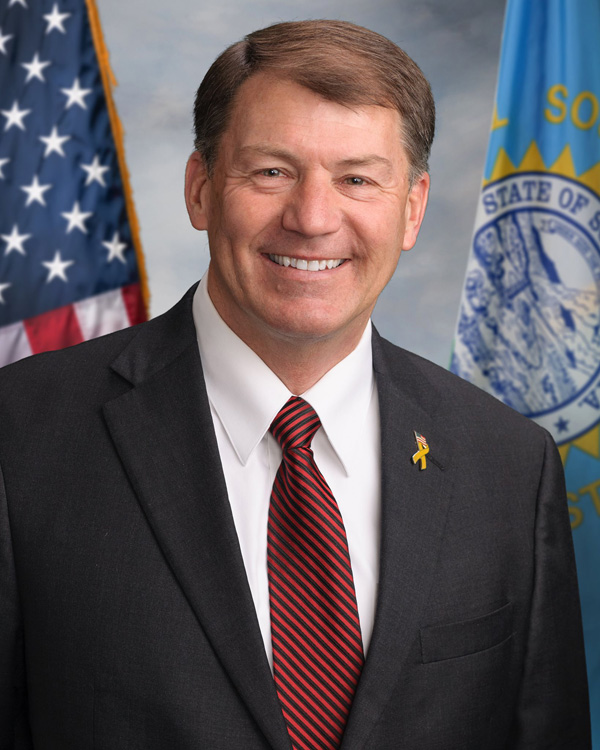Gov. objects to untrained civilians setting up roadblocks on State & US Highways. Why is legislative committee giving them cover?
The State’s Legislature’s State-Tribal Relations Committee met yesterday, and similar to their prior meeting, it leaves a person scratching their head. Every time they meet it turns into a soapbox for some committee members to throw rocks at the administration, and complain that Governor Noem is somehow being disrespectful because she didn’t come to the meeting and kiss their ring.
In the latest meeting yesterday, it seems that the focus of the grumbling is over a lawsuit that the Cheyenne River Sioux Tribe filed against the US Government.
As noted in the meeting:
Ravnsborg noted the June 22 lawsuit over checkpoints that was filed in federal court by the Cheyenne River Sioux Tribe against U.S. President Donald Trump and members of his administration over the checkpoints. Ravnsborg said the state of South Dakota isn’t a party.
Ravnsborg said he has a concern about potential interactions between tribal members at checkpoints and visiting motorcyclists and others headed to Sturgis for the August rally. Ravnsborg said he has discussed the situation with Ron Parsons, the U.S. attorney for South Dakota, but hasn’t talked with CRST Chairman Harold Frazier.
and..
Haugaard, an attorney, said the CRST lawsuit could be helpful in clarifying the federal law and he said the legislative committee could consider an amicus brief.
and…
Senator Lance Russell, a Hot Springs Republican, said it was “disrespectful” that the governor chose to not meet with the committee after being invited to its previous meeting. Russell said he recently went through several Oglala Sioux Tribe checkpoints and thought the questions were appropriate.
and..
He said he received photographs of people “with Trump hats and Noem hats looking to do some damage” on other reservations, such as Pine Ridge, in response to those checkpoints. “This is a real concern to us,” Lengkeek said
and..
Bordeaux said the committee can call the governor to testify: “I think this committee is owed a response.”
It sounds like there’s a lot of wrong-headedness going on here. To provide some context, I’d draw your attention to a letter from the US Department of Interior to the Cheyenne River Sioux Tribe.
6 10 20 Frazier_CRST by Pat Powers on Scribd
If you’re wondering why Attorney General Jason Ravnsborg has a concern over “potential interactions between tribal members at checkpoints and visiting motorcyclists,” one reason might be found within this letter between the CRST, and the Department of Interior (Tara Sweeney, Asst Sec for Indian Affairs):
Per the OJS fact finding operation, we have identified numerous instances in which individuals placed at CRST checkpoints along United States Route 212 (US 212) and South Dakota Highway 63 (SD 63) are presenting themselves as CRST police officers and prohibiting access to US 212 and SD 63. This information is consistent with reports previously provided by State of South Dakota (State) officials, health officers and private citizens.
At check points along US 212 and SD 63, individual operators were observed by OJS wearing tribal police badges and tribal police insignia on their clothing. In conversations with certain individuals operating CRST checkpoints, OJS has learned that checkpoint operators do not meet the below requirements set forth in Federal regulations and the Tribe’s law enforcement contract.
and…
CRST’s actions to deputize individuals who have not completed a background investigation and/or basic police training constitute a threat to public safety. Permitting such untrained individuals to restrict access to public highways presents an unacceptable risk for conflict, liability, and violence.
What the Assistant Secretary is saying to the Cheyenne River Sioux Tribe is pointing out is that they are setting up an untrained group of random people to restrict access on US and State Highways, and it’s a risk for conflict, liability, and violence. A point underlined by the Attorney General in the committee meeting.
Nevermind that there’s plenty of hyped up claims involved, such as with the completely and utterly ridiculous statement that because of the checkpoints, people “with Trump hats and Noem hats (are) looking to do some damage”
What’s the response? We have some Republican legislators who take the opportunity to claim the Governor is somehow being disrespectful and needs better communication. And that the legislative committee should file their own amicus brief in the lawsuit… (because legislative committees file amicus briefs in federal lawsuits all the time?)
Why does all this seem familiar? Maybe because it’s a reflection of what we’re seeing in the streets of Seattle and Atlanta.
You have local governments allowing groups to set up their own barricades to interdict traffic, ignoring the rule of law. You have apologists claiming that allowing it somehow promotes sovereignty and equality, and being critical of “the man.”
Law enforcement is doing their best not to throw fire on it, but they know it’s going to end poorly (as it has in Seattle and Atlanta), because it’s a mess with untrained people claiming authority, and it’s not legal. And they’re backed by the Trump administration agreeing that it’s unlawful, illegal and dangerous.
And somehow Nancy Pelosi believes that President Trump needs to come to committee to testify… Sorry. And certain members of the committee think they need to call Governor Noem to testify.
Do I have that about right?
The legislature should stay in their lane, and concern itself with writing South Dakota laws.
Because whether they realize it or not, they seem to be giving a lot of cover to those who are picking and choosing the laws they like.







